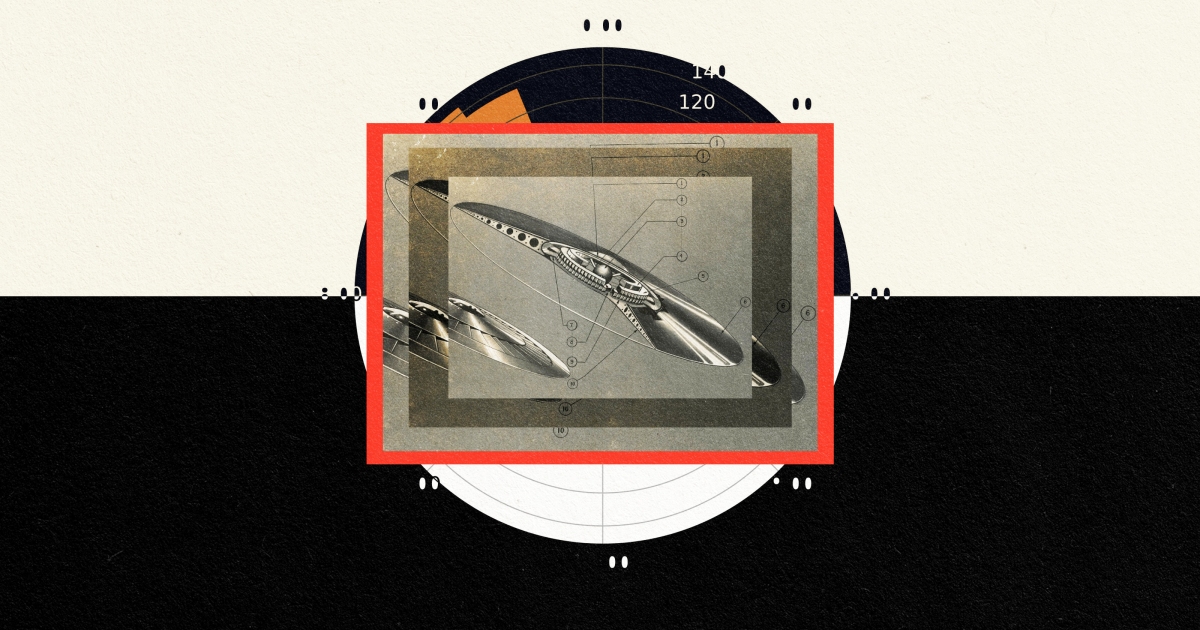Military “whistleblowers” have been making UFO claims for 70 years

I am writing this in a hotel room near Penn State University where, in about an hour, I will attend the second day of an international meeting on technosignatures, the SETI Symposium. (SETI is the Search for Extraterrestrial Intelligence.) Researchers from around the world have come here to discuss the best ways to search for evidence that can reveal the existence of intelligent, technology-building life. I think this is exciting.
Last week, however, a claim for the existence of intelligent, technology-building life came from a very different domain, in the form of a former intelligence official turned whistleblower. In interviews, David Grusch, the former Pentagon official in question, alleged that the government possesses intact and partially intact alien vehicles. After looking a little more into this, I can tell you that I do not find these claims exciting at all, especially compared to the stuff I am hearing about at this meeting.
We’ve heard this story before
For all the hoopla surrounding the whistleblower story, it is just hearsay. A guy says he knows a guy who knows another guy who heard from a guy that the government has alien spaceships. There’s no evidence here that a scientist like me could use to actually determine anything. The internet was, however, set abuzz by the news (though many of the major news outlets like the New York Times and the Washington Post steered clear of the story). But from my point of view, the important thing to understand about this latest dust-up is that it has all happened before.
In doing the research for The Little Book of Aliens — my new book that is mainly about the amazing frontiers of astrobiology but also explores UFOs/UAPs — I looked into the history of the latter. That is how I found, at the very beginning of UFO history, the story of Captain Edward Ruppelt.
70 years of hot air from whistleblowers
Ruppelt was in charge of Air Force UFO studies back in the early 1950s. After he retired, he wrote a book claiming that a secret government report called “The Estimate of the Situation” said UFOs were interplanetary in origin. Pretty shocking stuff, right? But no copy of the report has ever been found. So, if you are a UFO believer, you are probably going to believe Ruppelt; if you are a UFO skeptic, you are probably going to remain, well, skeptical.
I bring up Ruppelt’s story to point out that for the last 70 years, there have been many folks in the military claiming the government knows UFOs are from aliens (though in the end, Ruppelt was actually a UFO skeptic). But in all those 70 years, we have never seen any actual evidence. Despite the countless promises that “this time is going to be different, this time the world is finally going to see and be shocked,” the fog never lifts.
And that is why I am not excited about the whistleblower report.
Following the evidence on UFOs
Don’t get me wrong. I’m all for an open, transparent investigation into the whistleblower’s claims. I am also proud of my colleagues on the NASA UAP panel who are willing to endure the abuse from UFO true-believers and still do their best to conduct an agnostic scientific study of UFOs and UAPs. And if these investigations lead to verifiable evidence for alien life, I will follow where the data leads. After all, the scientific question I am most interested in is whether life has started anywhere other than Earth.
But I am not interested in anyone’s beliefs surrounding this question, mine least of all. I don’t want to believe — I need to know. Science is the method — the practice — that gives me the tools to generate that knowledge. Most importantly, the knowledge science generates will be public. It will rest on evidence that we can all agree is, in fact, evidence, and on the chains of reason that we can all agree link the evidence to a conclusion. Anything less is just a waste of time. I’m getting older, so every day counts.
I am simply not interested in hearing about extraordinary claims when the actual hard, scientific evidence to support those claims somehow always lies out of reach. If some folks want to pursue that kind of thing, have at it and have fun. But my colleagues and I here at this meeting have real work to do, trying to gather real evidence to answer the grand question of life and the Universe. That work is what I’m really excited about.
In this article


